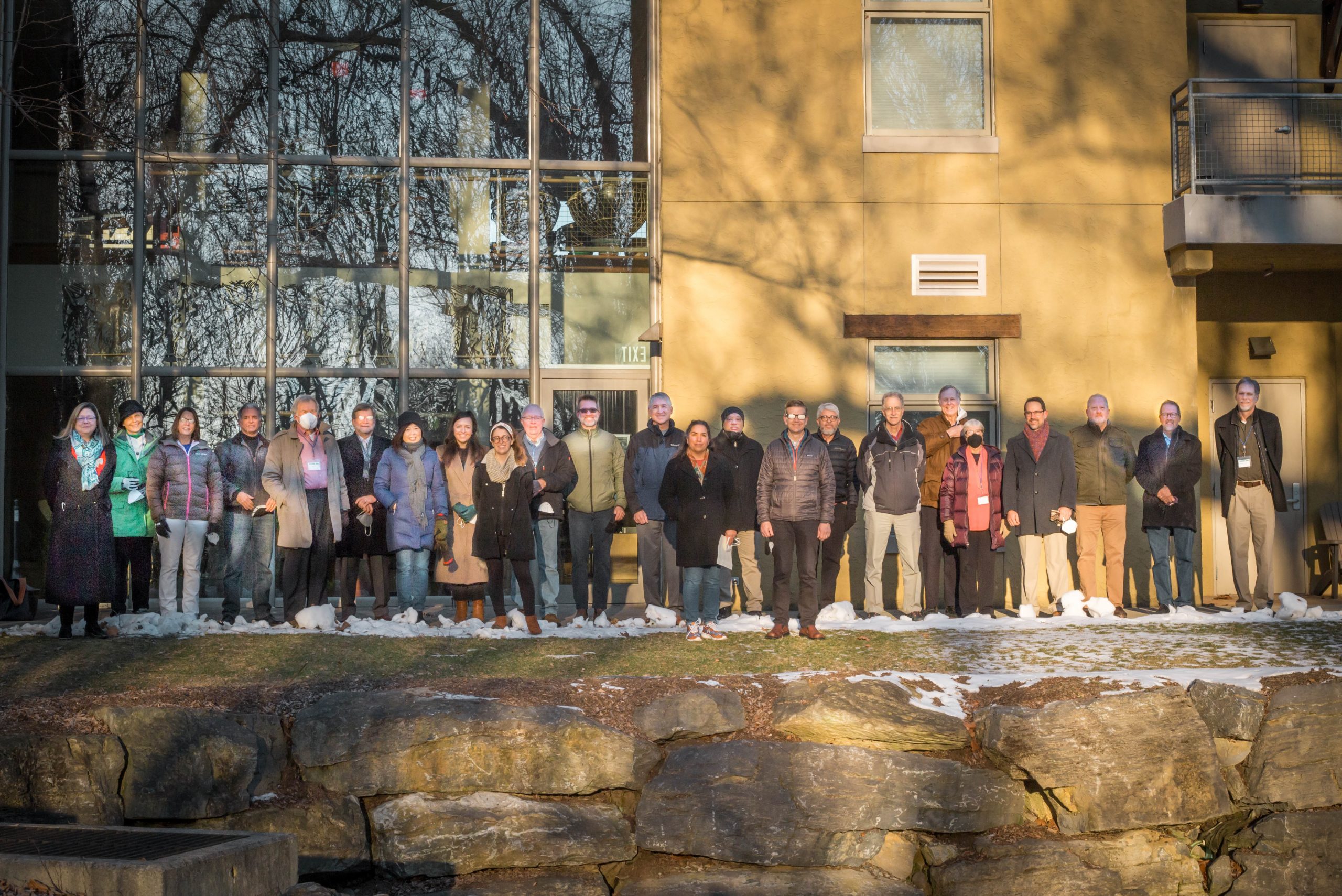Goshen College President Rebecca Stoltzfus was one of over 40 leaders from Anabaptist organizations in the United States and Canada to convene at the Anabaptist Collaboration on climate change on Jan. 26 and 27.
Stoltzfus and three other representatives from GC traveled to Akron, Pennsylvania to represent the college at the 24-hour event organized by the Center for Sustainable Climate Solutions (CSCS).“The leading goal of the gathering was to explore an Anabaptist approach to climate issues,” Stoltzfus explained in a blog post after the event.
Jonathon Schramm, professor of sustainability and environmental education at GC and member of the oversight board for CSCS, added: “It was really just meant to get people together … to talk about what their organizations might be ready to contribute towards long-term collaboration on climate change.”
The gathering was attended by high-level executives and leaders from 16 Anabaptist organizations.
“It was inspiring to see the variety of organizations, from Everence to MennoMedia to Mennonite Education Agency to Mennonite World Conference,” said Stotzfus. “It’s interesting to imagine, has that group of organizations ever gotten together for anything else?”
GC is one of the three main partners that currently make up CSCS. In an opening speech, Stoltzfus shared her hopes for the meeting: “I am excited in this gathering to learn what we might be able to do together,” she said.
Throughout the many sessions that followed, the participants discussed ways that each organization can implement sustainable practices and incorporate climate action into their unique areas of work.
“One of the things that seemed really clear to me,” Schramm said, “was that lots of groups were saying, ‘we need someone who can help us pay attention to [climate concerns] in our operations and in our decision making … we need a climate change advocate on our staff.’”
This holds true for Goshen College.
In November, the college hired Ben Bontrager as the vice president for operations, a new position that includes overseeing sustainability on campus. Schramm said he hopes this is only the first step in “getting sustainability and climate change … more plugged into what we’re doing on a daily basis” by building it into employees’ job descriptions.
Something Stoltzfus hopes to see come out of the gathering is a renewed effort on the part of the Anabaptist church to engage young people.
“I think youth and young adults are wondering, ‘how relevant is the church?’ ‘Does it really matter to me?’” she said. “So I began to imagine, what if the church, through its many organizations … would intentionally begin to try to bring together youth in a faith-based context to address climate change?”
“We were a gathering of organizational representatives mostly in their mid-life and beyond,” Stoltzfus wrote in her blog post. “How do we invite the leadership and perspective of young people? Goodness knows, we need them.”
At the gathering, one participant proposed the organizations draft a joint statement recognizing the threats of climate change and expressing a commitment to work toward climate justice. A final version of the statement will be signed and released in the next few weeks.
In the meantime, Stoltzfus and Schramm returned to Goshen excited about the prospect of new projects and collaborations.
“There definitely was a feeling of urgency and eagerness to talk about this,” Schramm said. “I think every one of the organizations there has been feeling, both from themselves and from their supporters, that it’s time to go.”



